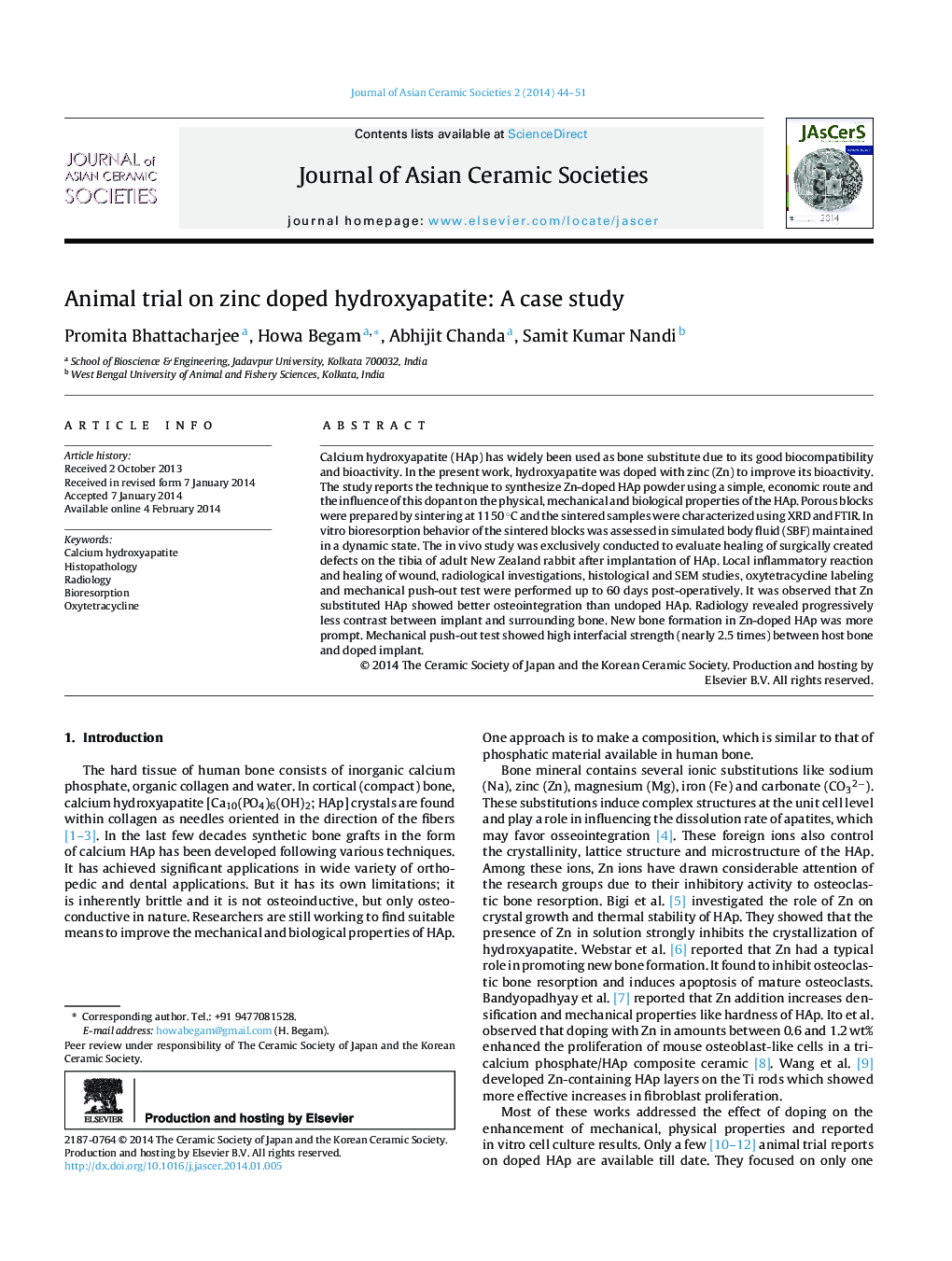| Article ID | Journal | Published Year | Pages | File Type |
|---|---|---|---|---|
| 1473372 | Journal of Asian Ceramic Societies | 2014 | 8 Pages |
Calcium hydroxyapatite (HAp) has widely been used as bone substitute due to its good biocompatibility and bioactivity. In the present work, hydroxyapatite was doped with zinc (Zn) to improve its bioactivity. The study reports the technique to synthesize Zn-doped HAp powder using a simple, economic route and the influence of this dopant on the physical, mechanical and biological properties of the HAp. Porous blocks were prepared by sintering at 1150 °C and the sintered samples were characterized using XRD and FTIR. In vitro bioresorption behavior of the sintered blocks was assessed in simulated body fluid (SBF) maintained in a dynamic state. The in vivo study was exclusively conducted to evaluate healing of surgically created defects on the tibia of adult New Zealand rabbit after implantation of HAp. Local inflammatory reaction and healing of wound, radiological investigations, histological and SEM studies, oxytetracycline labeling and mechanical push-out test were performed up to 60 days post-operatively. It was observed that Zn substituted HAp showed better osteointegration than undoped HAp. Radiology revealed progressively less contrast between implant and surrounding bone. New bone formation in Zn-doped HAp was more prompt. Mechanical push-out test showed high interfacial strength (nearly 2.5 times) between host bone and doped implant.
